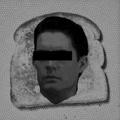Paranoid Fish reviewed Gravity's Rainbow by Thomas Pynchon
A very dark comedy
5 stars
It is impressive how Pynchon combines so many opposites in his work. Humour and tragedy, seriousness and silliness, ugliness and beauty, historical fact and fiction, the real and the surreal, the sublime and the profane, interspersed with, yes indeed, musical scenes. Over hundreds of pages, he maintains a style that challenges his audience to the utmost, that demands total concentration in its density, that is not only very demanding but also very appealing and often of poetic beauty, and that breaks with many literary conventions, even today. Although the horror of war strikes with full force in the opening scene, the basic tone of the novel is rather satirical, or picaresque. The main character, Tyrone Slothrop, an American GI investigating the impact sites of German V2 rockets towards the end of the Second World War in and around London for a British organization, gets caught up in a maelstrom of …
It is impressive how Pynchon combines so many opposites in his work. Humour and tragedy, seriousness and silliness, ugliness and beauty, historical fact and fiction, the real and the surreal, the sublime and the profane, interspersed with, yes indeed, musical scenes. Over hundreds of pages, he maintains a style that challenges his audience to the utmost, that demands total concentration in its density, that is not only very demanding but also very appealing and often of poetic beauty, and that breaks with many literary conventions, even today. Although the horror of war strikes with full force in the opening scene, the basic tone of the novel is rather satirical, or picaresque. The main character, Tyrone Slothrop, an American GI investigating the impact sites of German V2 rockets towards the end of the Second World War in and around London for a British organization, gets caught up in a maelstrom of alleged and actual conspiracies and in the abyss of his own paranoia and that of his pursuers. In the course of the plot, he is whisked away to the “Zone”, post-war Germany, where he is trying to find out out the secret of Imipolex G, a new, mysterious type of plastic in the V2 rockets, and increasingly loses his mind, not least due to the influence of drugs. There is also an esoteric organization called PISCES, which practices (para-)psychological warfare, the "Schwarzkommando", a (fictitious) special unit of African soldiers from the former German Southwest colony, and an SS lieutenant with sadomasochistic interests who is pursuing a sinister plan with a V2 rocket with the serial number 00000. Although much of Gravity's Rainbow is historically accurate, it would be wrong to call it historical fiction. Don't believe Pynchon, he plays with history and realities and also with his readers. It has to be said quite clearly: the novel is exhausting. It is difficult and demanding, you have to work your way through it. You will get lost at times, you will forget characters that were introduced at the beginning and only reappear 600 pages later. The author doesn't take this into consideration, you are never “picked up” at any point. But if you are prepared to see reading as a project, you will be richly rewarded with crazy ideas, strange conspiracy theories, disturbing human abysses and linguistic virtuosity. And, of course, musical scenes.









